Completed PhD Students
Dominic Budhi
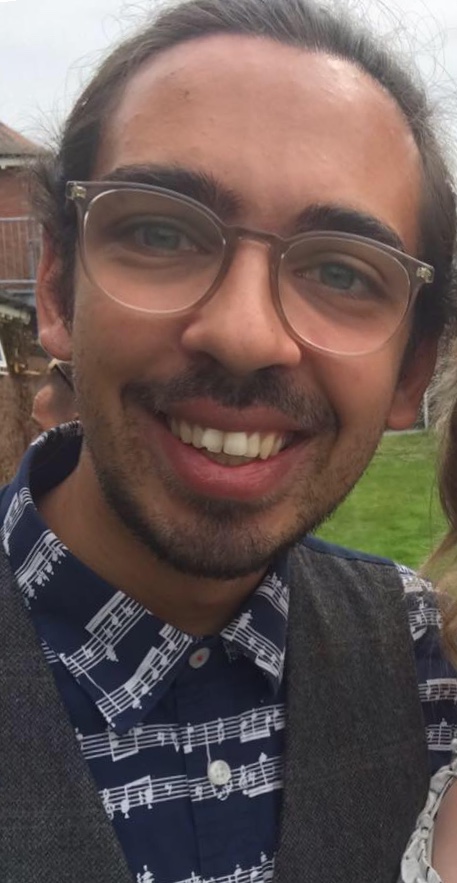
Dom is a PhD student supervised by Prof Peter Scott at the University, and Rev Canon Dr David Holgate at Manchester Cathedral. His studies are funded by the Faculty of Humanities.
Dom’s PhD research is focused on evaluating the public theology of Manchester Cathedral. The project seeks to contribute to the understanding both theologically and socially as to what the role of religious institutions is in society. He is going to analyse a range of the cathedral’s public work, and evaluating how the cathedral thinks theologically about its engagement. He will identify and evaluate the various public theologies that are present in some of partnerships and activities the cathedral is involved with. The project hopes to be able to identify the contours of public theology that emerge from the study, seeking how these might contribute to the development of the cathedrals engagement work. Because of the collaborative nature of this research the project will contribute to the field of public theology more widely by presenting a unique example of theological work being developed within the context of an institution actively engaged in public work.
Dom completed his BA in biblical studies and theology at Mattersey Hall Bible College (Partner college of the University of Chester) in 2016, and completed his MA in Biblical studies and Theology at the University of Manchester in 2018.
Elia Maggang
 Elia is a PhD student supervised by Professor Peter Scott, and a recipient of The Indonesian Endowment Fund for Education (LPDP) Scholarship.
Elia is a PhD student supervised by Professor Peter Scott, and a recipient of The Indonesian Endowment Fund for Education (LPDP) Scholarship.
His research focuses on the role of Christianity to the sea conservation in Indonesia. By seriously considering the context of Indonesia as an archipelago state that currently makes the maritime sector one of the main focuses of its national development and as a pluralistic nation (in religion, ethnicity and culture) as opportunities and challenges in this research, Elia works on generating a theology he calls “An Indonesian Maritime Theology.” It is a Christian theology developed systematically in dialogues with indigenous beliefs and other religions in the pluralistic society of Indonesia that contribute to the sea conservation efforts. With the doctrine of the Trinity employed as the theological foundation, the result of this research is expected to inspire all Indonesian people to participate in conserving the sea.
Elia is a member of Gereja Masehi Injili di Timor/GMIT (the Protestant Evangelical Church in Timor), at Emaus Liliba Congregation. He completed his Master of Theological Studies at Flinders University, Australia; and Bachelor in Theology at Artha Wacana Christian University, Indonesia. He can be contacted at elia.maggang@postgrad.manchester.ac.uk.
A. Scott McPeak
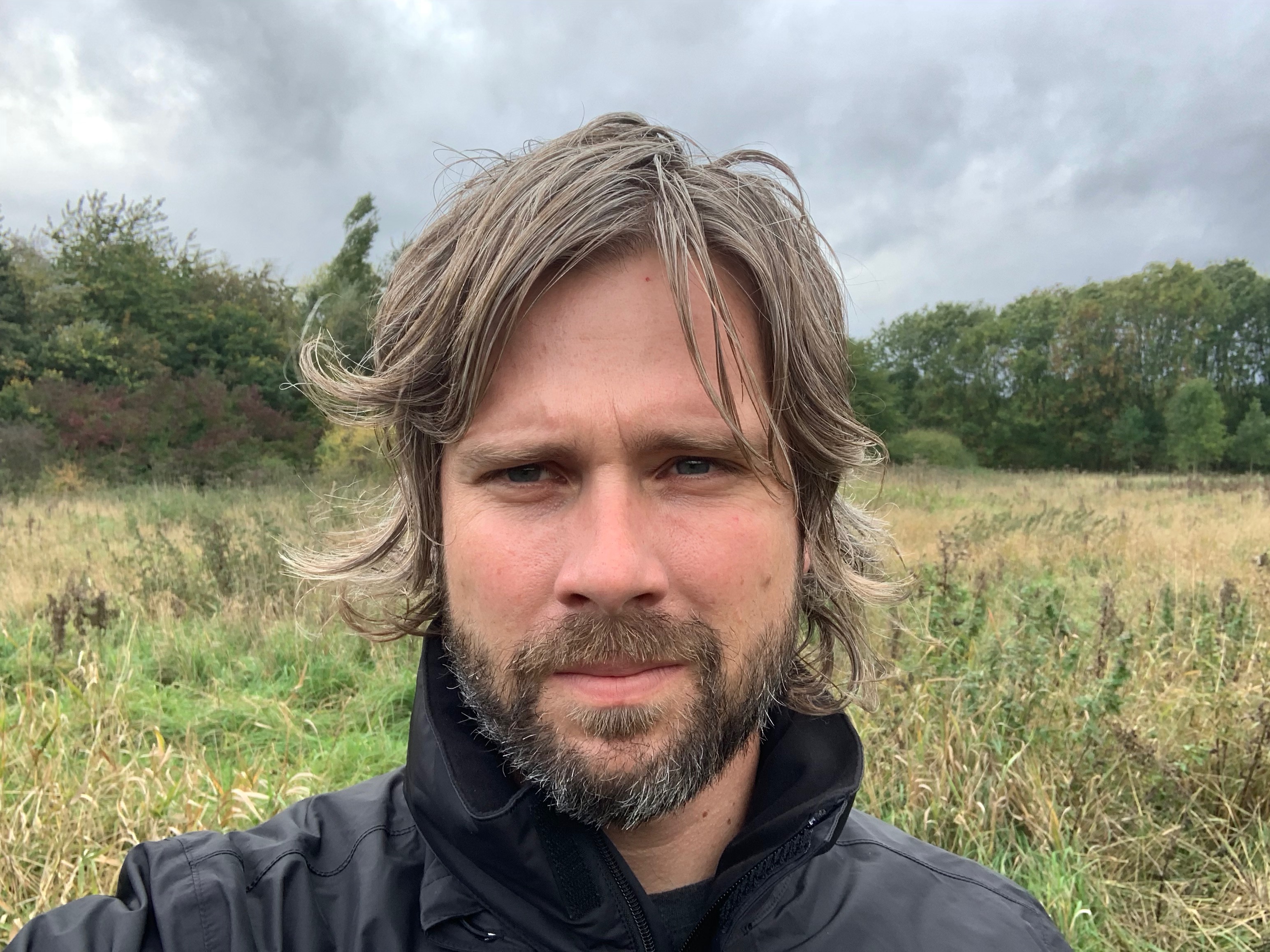
Scott is a first year PhD student supervised by Professor Peter Scott and a recipient of the School of Arts, Languages, and Cultures PhD Studentship (2018-2021).
Scott’s research is focused on the beginnings of a contextual liberation theology which responds to forms of estrangement and ‘enslavement’ in advanced technological societies. His current focus is on attention colonisation and issues of harm, culpability, and agency. Scott is also exploring select themes from classic Latin American liberation theology which may have meaning for those suffering within a complex and, at times, dehumanising culture of technology.
Scott completed his Master of Theological Studies (MTS) at the Franciscan School of Theology, in San Diego, California. Prior to his Master’s studies, Scott spent ten years in business management and ownership in Southern California. It was during this time that he witnessed, up close, people of all socio-economic levels struggling toward the elusive ‘American Dream’ while immersed in a fast-paced economic system and enduring disquieting forms of technologically-enhanced alienation. He can be contacted at scott.mcpeak@postgrad.manchester.ac.uk.
Caleb Gordon
Caleb is a first year PhD student supervised by Professor Peter Scott, and is the current recipient or the Lincoln International Doctoral Studentship (2017-2020). His research focuses on the role of aesthetic perception in environmental ethics and how a theological approach to beauty may thus affect a Christian approach to environmental ethics. One of the primary aims of his research is to examine the ways that an aesthetic approach can provide a suitable mode to engage the ambiguities and paradoxes which emerge from approaches to environmental ethics which rely on quantification. Furthermore, by exploring the theological hypothesis that perception of beauty amounts to recognition of that which God approves, this project hopes to open ways of doing environmental ethics in what is increasingly a “post-natural” world. If “going back to nature” is not a viable option, can beauty help us know where to go?
Caleb is originally from Alaska, where working on fishing boats and other exposures to panoramic wilderness provided inspiration for his post-graduate studies. After majoring in Philosophy and History at the University of Alaska Anchorage, Caleb took his Master’s degree in Philosophical Theology and Philosophy of Religion at Yale Divinity School, where he began to focus on the relationship between environmental ethics and Christian theology. He can be reached by email at caleb.gordon@postgrad.manchester.ac.uk.
Jonathan Dunn
Jonathan is a third year PhD student researching under the supervision of Professor Peter Scott. His current research engages with the concept of the Inaugurated Kingdom in North American evangelical theology. Noting recent claims to a consensus around inaugurated eschatology in this context, his work examines the ethical propositions being advanced on the basis of this position on the Kingdom of God. The project is largely concerned with assessing how these moves towards inaugurated kingdom ethics reflect the eschatological basis on which they are made.
Jonathan is a graduate of the University of Cambridge (History) and completed a Master’s degree at Queen’s University Belfast (Divinity). A Licentiate in the Presbyterian Church in Ireland, he also completed a Postgraduate Diploma in Ministry at Union Theological College, Belfast. He is a recipient of Lincoln Theological Institute’s Mark Gibbs Doctoral Studentship (2015-18). He can be contacted at jonathan.dunn@manchester.ac.uk.
Rachel Bathurst
Rachel undertook research on the policy framework underpinning the United Nation’s Convention of Biological Diversity, the ecosystem approach, which aims to integrate environmental concerns with socio-economic concerns in order to conserve biodiversity and use it sustainably in a fair and equitable way. The ecosystem approach has recently been taken up by local, national and international institutions with increasing momentum with the vision that once implemented it has the potential to deliver a sustainable future for both humanity and nature. Under the auspices of Professor Peter Scott, and a recipient of the LTI Hedley Lucas studentship, her work was concerned with a theological investigation into the different institutional interpretations and implementations of the ecosystem approach which potentially lead to a wide range of approaches being delivered on the ground and through policy. Rachel’s work included exposing the priorities and drivers of institutions which lead to these differences, in particular the relation between human wellbeing and economic growth goals over and against nature conservation objectives, within a discourse analysis framework. She demonstrated that an eschatological and pneumatological investigation into this analysis can challenge the presuppositions and modus operandi of anthropocentrically driven national and international institutions, and possibly provide an alternative ontological framework by which to undersrtand human and non-human flourishing. Rachel has previously had a long career as an environmental professional in the civil service, shaping and analysing UK and international governmental policy in development, climate change, renewable energy and strategic policy, although she started out as an ecologist in the UK and in the Peruvian Amazon and as an adviser to various local planning authorities. She is also a Licensed Lay Minister in the Church of England.
Anthony Floyd
 Anthony completed a BA in Religions and Theology and an MA in Religion and Political Life at the University of Manchester and completed doctoral research under the supervision of Professor Peter Scott in 2019. His research focused on the role which Western Consumerism plays in the degradation of the environment and the role which theology can play in promoting environmental conservation. He sought to examine theological models of the environment to ascertain in what ways they can be helpful in critiquing the pervasive phenomenon of consumerism and in what ways they can inspire a change in environmental attitudes. In so doing he explored ways of undermining the stark dichotomy between religion and science, so often presented in the popular media, as well as demonstrating the importance of theology’s voice in contemporary society. His research spans a number of academic disciplines including theology, political philosophy, ecology, economics and sociology. Anthony's research was supported by the Arts and Humanities Research Council, and he was also a recipient of the President’s Doctoral Scholar award.
Anthony completed a BA in Religions and Theology and an MA in Religion and Political Life at the University of Manchester and completed doctoral research under the supervision of Professor Peter Scott in 2019. His research focused on the role which Western Consumerism plays in the degradation of the environment and the role which theology can play in promoting environmental conservation. He sought to examine theological models of the environment to ascertain in what ways they can be helpful in critiquing the pervasive phenomenon of consumerism and in what ways they can inspire a change in environmental attitudes. In so doing he explored ways of undermining the stark dichotomy between religion and science, so often presented in the popular media, as well as demonstrating the importance of theology’s voice in contemporary society. His research spans a number of academic disciplines including theology, political philosophy, ecology, economics and sociology. Anthony's research was supported by the Arts and Humanities Research Council, and he was also a recipient of the President’s Doctoral Scholar award.
David McLachlan
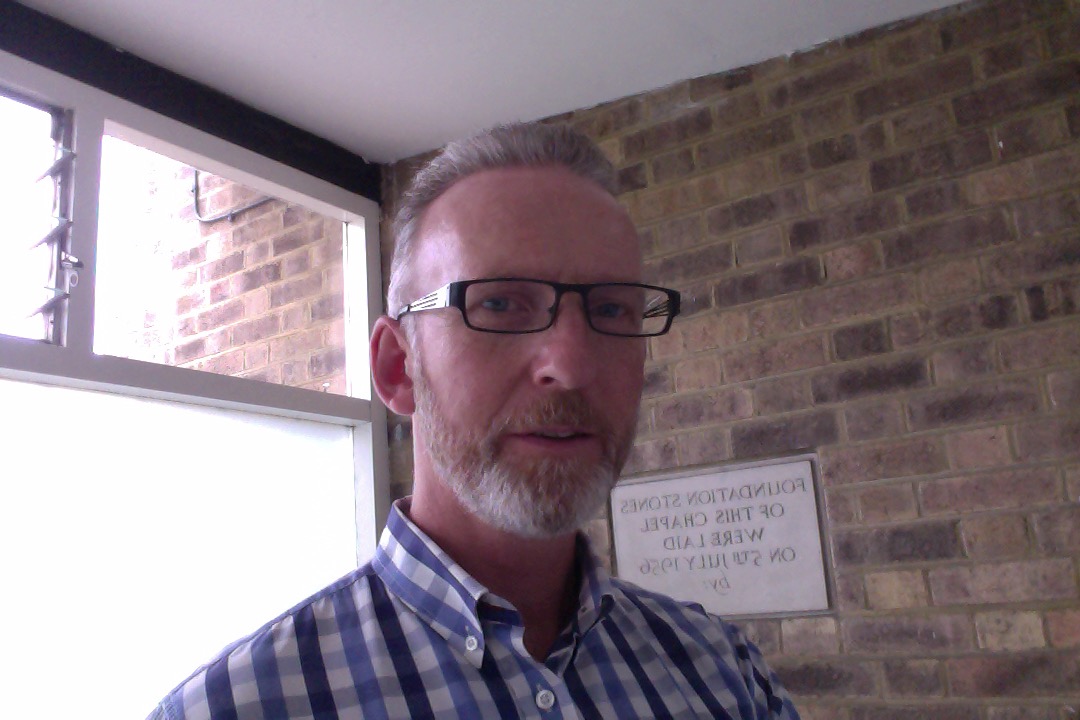 David, following a BA in Metallurgy at the University of Oxford and a career in finance and corporate mergers and acquisitions, is now a Baptist minister, with a Bachelor of Divinity degree from the University of Wales and a Master of Theology degree from the University of Manchester and is involved in training ministers at Spurgeons College, London. David completed his PhD in 2018 and was supervised by Peter Scott. He investigated the relationship between current Christian Disability Theology and western Christian understandings of the Atonement wrought by God through Jesus Christ. What sort of account of the Atonement already exists in Disability Theology; and in what ways do the insights of disability studies and Disability Theology challenge and demand changes in the ways we understand and talk about the Atonement? What opportunity is there for a deeper conversation by which each enriches the other?
David, following a BA in Metallurgy at the University of Oxford and a career in finance and corporate mergers and acquisitions, is now a Baptist minister, with a Bachelor of Divinity degree from the University of Wales and a Master of Theology degree from the University of Manchester and is involved in training ministers at Spurgeons College, London. David completed his PhD in 2018 and was supervised by Peter Scott. He investigated the relationship between current Christian Disability Theology and western Christian understandings of the Atonement wrought by God through Jesus Christ. What sort of account of the Atonement already exists in Disability Theology; and in what ways do the insights of disability studies and Disability Theology challenge and demand changes in the ways we understand and talk about the Atonement? What opportunity is there for a deeper conversation by which each enriches the other?
Rajbharat Patta
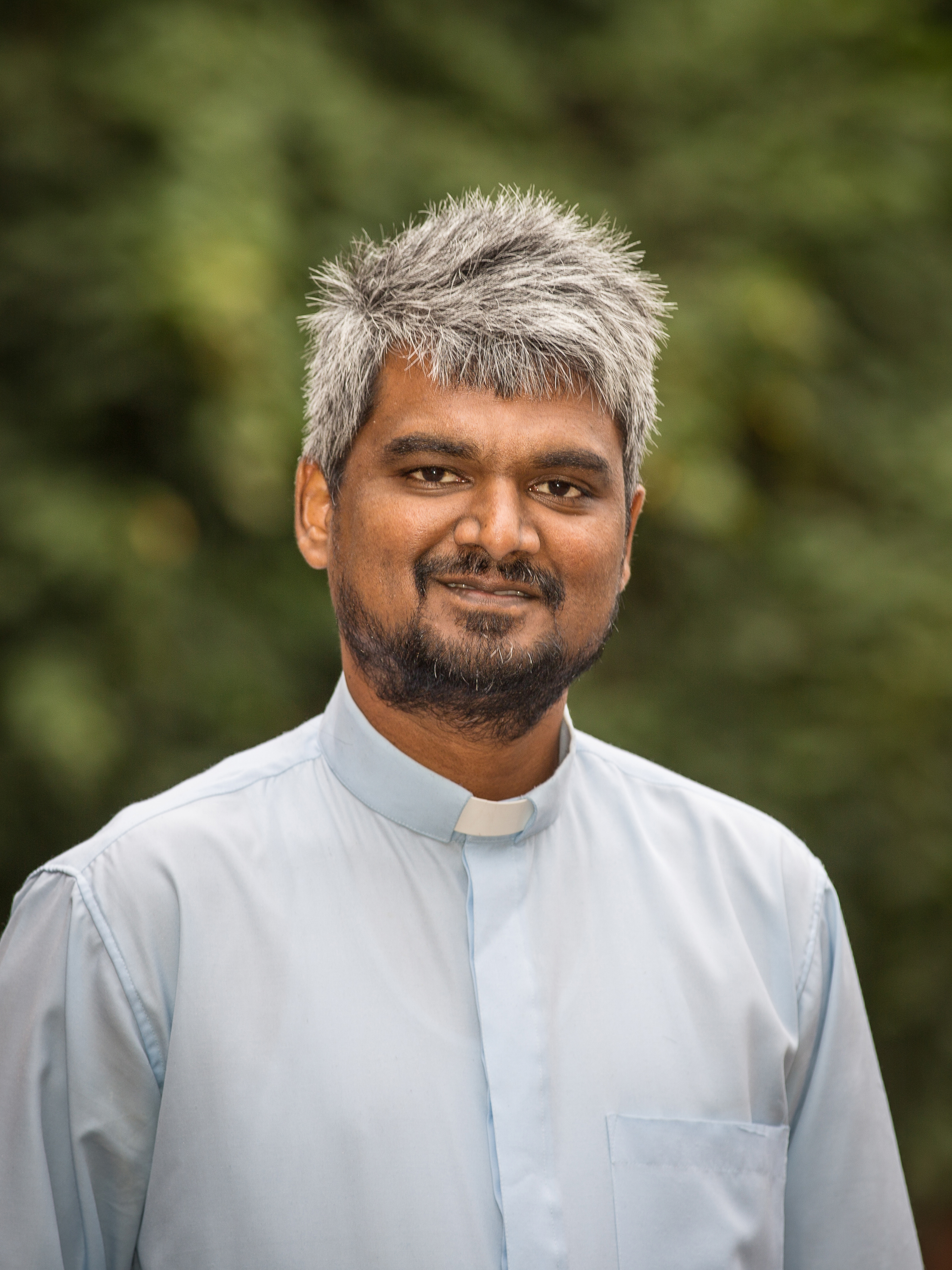 Raj completed his PhD in 2018 under the supervision of Prof. Peter Scott. He was a recipient of Lincoln International Doctoral Studentship (2014-17) from Lincoln Theological Institute of the University of Manchester. His thesis explored Constructing a Subaltern Public Theology for India, where he engaged in researching what is public from a non-public perspective and what is theological about such an enterprise? This research tested the relevance of Christian faith in the Indian public sphere from subaltern perspectives and resources. The thesis engages with Habermas, Nancy Fraser, Ambedkar on public, and with Sathianathan Clarke and YT Vinayaraj on Subaltern theologies in India. In its construction of Subaltern Public Theology, method, epistemology and hermeneutics are evolved and theologised. This research project has greater relevance in systematizing public theology, opening up new vistas and horizons in public theologizing endeavour.
Raj completed his PhD in 2018 under the supervision of Prof. Peter Scott. He was a recipient of Lincoln International Doctoral Studentship (2014-17) from Lincoln Theological Institute of the University of Manchester. His thesis explored Constructing a Subaltern Public Theology for India, where he engaged in researching what is public from a non-public perspective and what is theological about such an enterprise? This research tested the relevance of Christian faith in the Indian public sphere from subaltern perspectives and resources. The thesis engages with Habermas, Nancy Fraser, Ambedkar on public, and with Sathianathan Clarke and YT Vinayaraj on Subaltern theologies in India. In its construction of Subaltern Public Theology, method, epistemology and hermeneutics are evolved and theologised. This research project has greater relevance in systematizing public theology, opening up new vistas and horizons in public theologizing endeavour.
Raj is an ordained minister of the Andhra Evangelical Lutheran Church in India and currently serves as Honorary Chaplain at St. Peter's Church and Chaplaincy, ministering to the higher education communities in Manchester. Prior to this, he served as the general secretary of the Student Christian Movement of India, and also served as an executive secretary of the National Council of Churches in India. He was a visiting faculty member at the United Theological College, Bangalore where he taught Dalit Theology. He was commissioned by the Alternative Tourism Group in Palestine on a study on the Theology of Pilgrimage in Palestine Israel and has released the book titled "Listening to Living Stones: Towards a Theology of Kairos Pilgrimage" in December 2014. He is also the author of the book "A Violent Sight on a Silent Night: Missological Discourses on Violence against Dalit Christians in India" in 2008. He has written extensively on contemporary theological and political issues and has lectured at several places. He is a blogger and blogs on www.thepattas.blogpspot.com.
Mark J Williams
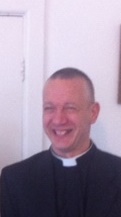 Mark completed an MPhil which looked into the relationship between asceticism and the definitions which reflect boundary, holiness and freedom. This was with particular reference to the document Issues in Human Sexuality which requires clergy of the Church of England to be either married or celibate. Mark has sought to explore how this reflects boundary but not an asceticism of either choice or freedom. Through the writings of Rogers, Coakley John and Song he has initially examined the elements of holiness and boundary found in permanent t relationships. Introducing a theme of freedom, Mark has looked at three theologians who reflect a wider definition of choice and embrace a greater sense of freedom: Alison, Jordan and Althaus-Reid. Through these differing approaches to asceticism, Mark argued that Issues in Human Sexuality relies on boundary only, rather than holiness or freedom. In ‘real life’ Mark is a Vicar of a parish in East Lancashire.
Mark completed an MPhil which looked into the relationship between asceticism and the definitions which reflect boundary, holiness and freedom. This was with particular reference to the document Issues in Human Sexuality which requires clergy of the Church of England to be either married or celibate. Mark has sought to explore how this reflects boundary but not an asceticism of either choice or freedom. Through the writings of Rogers, Coakley John and Song he has initially examined the elements of holiness and boundary found in permanent t relationships. Introducing a theme of freedom, Mark has looked at three theologians who reflect a wider definition of choice and embrace a greater sense of freedom: Alison, Jordan and Althaus-Reid. Through these differing approaches to asceticism, Mark argued that Issues in Human Sexuality relies on boundary only, rather than holiness or freedom. In ‘real life’ Mark is a Vicar of a parish in East Lancashire.
Rohan Gideon
Rohan is a previous holder of the Lincoln International Doctoral Studentship and successfully defended his thesis in October 2015. His dissertation, The Agency of Children: Towards a Child Theology for India, was supervised by Professor Peter Scott. In his research, Rohan discussed how current forms of Christian child theologies present children largely as ‘passive’ participants, whose own voices and views are treated as less significant than adult views. His work showed how some of the discussions on ‘agency’ in child theologies in general and liberation theologies in India deter or advance the agential significance of children, and proposes ways of constructing a child theology for India. Rohan is an ordained Deacon of the Church of South India (CSI), and has an MTh in Christian Theology from Serampore University (India). He taught Christian Theology at Tamilnadu Theological Seminary, Madurai (India). He has authored a book, Child Labour in India: Its Challenges for Theological Thought and Christian Ministry in India (Delhi/ Nagpur: ISPCK/ NCCI, 2011), and has contributed articles in journals and volumes in this area.
Scott Midson
Scott, having completed both undergraduate and postgraduate study in Religions and Theology at Manchester, undertook doctoral research into the limits of the ‘human’ with regards to rapidly advancing technologies. Completed in late 2015, and supervised by Professor Peter Scott, his work investigated the possibility of constructing a ‘cyborg theology’ which sought to emphasise the concept of hybridity when considering how technologies are reshaping what we can essentially regard as human. While Scott works from a broadly theological perspective, the nature of his research means that it spans a number of disciplines; from sociology to computer science, and from anthropology to bioethics. Although research in the field of ‘posthumanities’ is developing from the humanities as much as from the sciences, what is unique about this work is that it seeks to address inconsistencies and a lack of consensus in the literature about the different outcomes of a human intermingling with technology. Are advanced technologies, such as artificial intelligence and various medicinal tools, techniques and prostheses, theologically speaking, something we should fear or embrace? Scott’s research was supported by the Arts and Humanities Research Council, and he was part of the first cohort of recipients of the President’s Doctoral Scholar award. He is currently undertaking postdoctoral research, again at the LTI, exploring further questions about human-technology interaction.
Charlie Pemberton
 Charlie completed his BA (hons) at Durham University before moving to Manchester where he won the Mark Gibbs and Henry Lucas awards from the Lincoln Theological Institute for doctoral research. Assuming a poststructuralist, interdisciplinary method, through his work he was primarily interested in modern and postmodern political theologies, particularly when applied to recent social/sociological trends. Supervised by Prof. Peter Scott, his doctoral research, successfully completed in 2015, was an examination of religiously informed public discourses in civil society, more specifically contemporary Christian charities that work with those suffering homelessness. Contending that charities are an inherently interdisciplinary subject, Charlie used political theory to contextualise charities and the myriad ways they have historically structured the agency of both ‘donor’ and ‘recipient’, and he drew on theologically informed anthropologies to ask, are Christian accounts of the person at variance or at ease with the human sustained and produced by charities? Finding the emancipatory credentials of Christian homelessness charities highly ambiguous, this text’s conclusions bear on both the current politics of the ‘Big Society’ and the political theologies of Radical Orthodoxy and Liberation Theology.
Charlie completed his BA (hons) at Durham University before moving to Manchester where he won the Mark Gibbs and Henry Lucas awards from the Lincoln Theological Institute for doctoral research. Assuming a poststructuralist, interdisciplinary method, through his work he was primarily interested in modern and postmodern political theologies, particularly when applied to recent social/sociological trends. Supervised by Prof. Peter Scott, his doctoral research, successfully completed in 2015, was an examination of religiously informed public discourses in civil society, more specifically contemporary Christian charities that work with those suffering homelessness. Contending that charities are an inherently interdisciplinary subject, Charlie used political theory to contextualise charities and the myriad ways they have historically structured the agency of both ‘donor’ and ‘recipient’, and he drew on theologically informed anthropologies to ask, are Christian accounts of the person at variance or at ease with the human sustained and produced by charities? Finding the emancipatory credentials of Christian homelessness charities highly ambiguous, this text’s conclusions bear on both the current politics of the ‘Big Society’ and the political theologies of Radical Orthodoxy and Liberation Theology.
Theodros Assefa Teklu
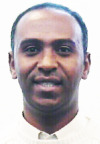 Theodros successfully defended his thesis in 2013. Before coming to Manchester he completed two postgraduate programmes: MA in Biblical and Theological Studies (2003-2005) and PGDip in HIV and AIDS in Relation to Theological Studies (2006) at the Ethiopian Graduate School of Theology (EGST). Before that, he received a BSc in Biology (1991) from Addis Ababa University, Ethiopia. He served as a Registrar and HIV Course Leader (August 2007-January 2009) at EGST. Prior to that, he had experience as a school-teacher, church minister (in different capacities mainly teaching and administration/leadership) and also as a Documentation Officer for a Faith-based Organisation (FBO) working on Prevention of Mother-to-Child Transmission of HIV (PMTCT) programme. The topic of his PhD research is "Towards a Theology of Ethnic Justice: The Case of Ethiopia."
Theodros successfully defended his thesis in 2013. Before coming to Manchester he completed two postgraduate programmes: MA in Biblical and Theological Studies (2003-2005) and PGDip in HIV and AIDS in Relation to Theological Studies (2006) at the Ethiopian Graduate School of Theology (EGST). Before that, he received a BSc in Biology (1991) from Addis Ababa University, Ethiopia. He served as a Registrar and HIV Course Leader (August 2007-January 2009) at EGST. Prior to that, he had experience as a school-teacher, church minister (in different capacities mainly teaching and administration/leadership) and also as a Documentation Officer for a Faith-based Organisation (FBO) working on Prevention of Mother-to-Child Transmission of HIV (PMTCT) programme. The topic of his PhD research is "Towards a Theology of Ethnic Justice: The Case of Ethiopia."
Kyle Gingerich Hiebert
 Kyle successfully completed his PhD under the supervision of Professor Graham Ward in the Centre for Religion and Political Culture at the University of Manchester. His doctoral thesis, entitled The Architectonics of Hope: Violence, Apocalyptic, and the Transformation of Political Theology, is a genealogical account of the violences operative in the development of political theology since the early 1920's and an attempt to dismantle these violences through an examination of five key interlocutors including Carl Schmitt, Johann Baptist Metz, John Milbank, David Bentley Hart, and John Howard Yoder. Examples of his work can be found in journals such as New Blackfriars and Telos. During the course of his doctoral research, he also acted as a Graduate Teaching Assistant on a number of courses including Introduction to the History of Philosophy and Problems in Theology, Philosophy, and Ethics: Evil. He holds an MA (by Research) in Philosophical Theology (Distinction) from the University of Nottingham, a Hon. BA in Philosophy (High Distinction) from the University of Toronto, and a BTh in Theology from Canadian Mennonite Bible College. His doctoral research was funded by the Higher Education Funding Council for England, The University of Manchester, and the Canadian High Commission.
Kyle successfully completed his PhD under the supervision of Professor Graham Ward in the Centre for Religion and Political Culture at the University of Manchester. His doctoral thesis, entitled The Architectonics of Hope: Violence, Apocalyptic, and the Transformation of Political Theology, is a genealogical account of the violences operative in the development of political theology since the early 1920's and an attempt to dismantle these violences through an examination of five key interlocutors including Carl Schmitt, Johann Baptist Metz, John Milbank, David Bentley Hart, and John Howard Yoder. Examples of his work can be found in journals such as New Blackfriars and Telos. During the course of his doctoral research, he also acted as a Graduate Teaching Assistant on a number of courses including Introduction to the History of Philosophy and Problems in Theology, Philosophy, and Ethics: Evil. He holds an MA (by Research) in Philosophical Theology (Distinction) from the University of Nottingham, a Hon. BA in Philosophy (High Distinction) from the University of Toronto, and a BTh in Theology from Canadian Mennonite Bible College. His doctoral research was funded by the Higher Education Funding Council for England, The University of Manchester, and the Canadian High Commission.
Clare Greer
 Clare has successfully submitted her thesis, under the supervision of Professor Graham Ward in the Centre for Religion and Political Culture at the University of Manchester. Her doctoral work explored the significance of the Hegelian philosophy of Gillian Rose (1947-1995) for contemporary orthodox political theology, particularly her interaction with John Milbank. She holds an MA in Religion, Culture and Society (Distinction) and BA in Religions and Theology (First Class) both from the University of Manchester. Her research was supported by the Arts and Humanities Research Council.
Clare has successfully submitted her thesis, under the supervision of Professor Graham Ward in the Centre for Religion and Political Culture at the University of Manchester. Her doctoral work explored the significance of the Hegelian philosophy of Gillian Rose (1947-1995) for contemporary orthodox political theology, particularly her interaction with John Milbank. She holds an MA in Religion, Culture and Society (Distinction) and BA in Religions and Theology (First Class) both from the University of Manchester. Her research was supported by the Arts and Humanities Research Council.
Richard Benda
 Richard has successfully completed his PhD in the Centre for Religion and Political Culture at the University of Manchester studying under Dr. Michael Hoelzl. The title of his thesis is "Weighed and Tested: Christian and Muslim Communities and the Rwandan Genocide." His research addresses key questions in relation to religious authority and the role of faith in response to the complexity of African identity-based conflicts, of which the Rwandan genocide is an extreme case. This research is designed to be an invaluable academic contribution to the process of peace building and reconciliation for the people of Rwanda. In the context of the increasing visibility of religion in the public arena and in international politics especially, the project assesses the political potential of Christianity and Islam in Rwanda both as agents of conflict and actors in peacemaking. Before arriving in Manchester Richard was half-way through his first year of law school when the Rwandan Genocide happened and life as he knew it ceased to exist. It took him three years to realize that despite personal abyssal loss, national moral collapse and a future without dreams, life had to go on for those who survived! So he returned to law school and graduated with a Masters degree. He then went on to study for a BA and MA in Religions and Theology at the University of Manchester which led him to his doctoral work.
Richard has successfully completed his PhD in the Centre for Religion and Political Culture at the University of Manchester studying under Dr. Michael Hoelzl. The title of his thesis is "Weighed and Tested: Christian and Muslim Communities and the Rwandan Genocide." His research addresses key questions in relation to religious authority and the role of faith in response to the complexity of African identity-based conflicts, of which the Rwandan genocide is an extreme case. This research is designed to be an invaluable academic contribution to the process of peace building and reconciliation for the people of Rwanda. In the context of the increasing visibility of religion in the public arena and in international politics especially, the project assesses the political potential of Christianity and Islam in Rwanda both as agents of conflict and actors in peacemaking. Before arriving in Manchester Richard was half-way through his first year of law school when the Rwandan Genocide happened and life as he knew it ceased to exist. It took him three years to realize that despite personal abyssal loss, national moral collapse and a future without dreams, life had to go on for those who survived! So he returned to law school and graduated with a Masters degree. He then went on to study for a BA and MA in Religions and Theology at the University of Manchester which led him to his doctoral work.
Joseph Duggan
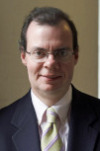 Joseph successfully defended his doctoral thesis, written under the supervision of Dr. Peter Scott in the Lincoln Theological Institute at the University of Manchester. His dissertation was entitled "Whole and Parts in Ecclesiology: A Critical, Postcolonial Theological Analysis." This research has proved crucial for his other research endeavors in postcolonial theory and theology; especially, he is founding editor of Postcolonial Networks (for his bio, click here). His recent publications include "The Postcolonial Paradox: Becoming Less than Whole(s) Producing Parts that Exclude Other Parts," Journal of Anglican Studies, vol. 7.01, May 2009, pp 67-77.
Joseph successfully defended his doctoral thesis, written under the supervision of Dr. Peter Scott in the Lincoln Theological Institute at the University of Manchester. His dissertation was entitled "Whole and Parts in Ecclesiology: A Critical, Postcolonial Theological Analysis." This research has proved crucial for his other research endeavors in postcolonial theory and theology; especially, he is founding editor of Postcolonial Networks (for his bio, click here). His recent publications include "The Postcolonial Paradox: Becoming Less than Whole(s) Producing Parts that Exclude Other Parts," Journal of Anglican Studies, vol. 7.01, May 2009, pp 67-77.
Ruth Hadley
Ruth successfully defended her PhD thesis in autumn 2012. Ruth's undergraduate degree was conducted in Religious Studies at Lancaster University. Since then, she has returned to her native city of Manchester to pursue her particular interest in the contemporary interrelation between religion and politics at the Centre for Religion and Political Culture for both her MA and PhD degrees. She studied under Dr. Michael Hoelzl, and her research focused on the concept of tolerance under the working title, "The Intolerance of Tolerance." It challenged the validity of the contemporary promotion of tolerance as the long term solution to the "dilemma of difference;" the question of how people with different and even opposing value-belief systems might peacefully co-exist. The research undertook a genealogical survey of tolerance from its Latin origins in the term "tolerare" to "tolerance" as promoted in the 1995, UNESCO-sponsored "Year of Tolerance." It also examined the contemporary academic arguments for and against a public political policy of tolerance. The aim was to situate tolerance firmly within the historical process; expressive of particular historical values and particular historical interests. The question ultimately addressed was whether alternative solutions to the ‘dilemma of difference’ ought perhaps to be upheld and what, if necessary, abandoning the current policy of tolerance might entail.
Samson Heilgiorgis
 Samson, the first holder of the Lincoln International Doctoral Studentship, has successfully completed his doctoral thesisis under the supervision of Prof. Peter Scott at the Lincoln Theological Institute at the University of Manchester. His research topic was "Unity amongst the Evangelical Churches of Ethiopia: A Theological and Empirical Study." The Ethiopian evangelical churches, although less than seventy years old, are growing at an average rate of 15% per year, and at present have nearly 11 million members, organised in nearly fifty denominations. The mushrooming of new churches is considered by some as part of church growth and by others as dividing the Body of Christ. The research involved data collection from individual churches in Ethiopia, using questionnaires, interview, focus group discussion, and analysing statements of faith, basic doctrines and organisational structures. A medical doctor by background, Samson is also active in leadership in the Mennonite Church of Ethiopia, and has an MTh from the Ethiopian Graduate School of Theology and an MSc in Population Health Economics from Manchester University.
Samson, the first holder of the Lincoln International Doctoral Studentship, has successfully completed his doctoral thesisis under the supervision of Prof. Peter Scott at the Lincoln Theological Institute at the University of Manchester. His research topic was "Unity amongst the Evangelical Churches of Ethiopia: A Theological and Empirical Study." The Ethiopian evangelical churches, although less than seventy years old, are growing at an average rate of 15% per year, and at present have nearly 11 million members, organised in nearly fifty denominations. The mushrooming of new churches is considered by some as part of church growth and by others as dividing the Body of Christ. The research involved data collection from individual churches in Ethiopia, using questionnaires, interview, focus group discussion, and analysing statements of faith, basic doctrines and organisational structures. A medical doctor by background, Samson is also active in leadership in the Mennonite Church of Ethiopia, and has an MTh from the Ethiopian Graduate School of Theology and an MSc in Population Health Economics from Manchester University.
Anchu Tee
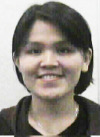 Anchu successfully completed her doctoral studies in 2012, and was supervised by Dr. Michael Hoelzl. Before arriving in Manchester, she studied for an undergraduate degree in Chinese literature, which she followed up with a Master’s degree in Western Philosophy. Her current thesis is based on the development of Christianity, and the Christian movement, in China. This particular topic has arisen from a number of factors, but the predominant pair relate to her own personal life. First, her grandparents were born and raised in China, so the country has a personal resonance in her life, and work. Secondly, she have been a Christian for a number of years, and the rise of a significant world religion in a rising global force is significant for her. More specifically, her work focuses upon Bishop K. H. Ting, as he has proven to be the most significant Christian in what some term "new China." She also has interests within the interplay of Marxism and religion, as her Master’s thesis was based on the philosophy of Marx. As China becomes more overtly involved with the global economy, the development of religion and religious movements within China is of global interest. Furthermore, the development of Chinese religion within a pseudo-Marxist framework will be of significant impact to global philosophy and theology in particular.
Anchu successfully completed her doctoral studies in 2012, and was supervised by Dr. Michael Hoelzl. Before arriving in Manchester, she studied for an undergraduate degree in Chinese literature, which she followed up with a Master’s degree in Western Philosophy. Her current thesis is based on the development of Christianity, and the Christian movement, in China. This particular topic has arisen from a number of factors, but the predominant pair relate to her own personal life. First, her grandparents were born and raised in China, so the country has a personal resonance in her life, and work. Secondly, she have been a Christian for a number of years, and the rise of a significant world religion in a rising global force is significant for her. More specifically, her work focuses upon Bishop K. H. Ting, as he has proven to be the most significant Christian in what some term "new China." She also has interests within the interplay of Marxism and religion, as her Master’s thesis was based on the philosophy of Marx. As China becomes more overtly involved with the global economy, the development of religion and religious movements within China is of global interest. Furthermore, the development of Chinese religion within a pseudo-Marxist framework will be of significant impact to global philosophy and theology in particular.
Qi Zheng
 Qi completed her doctorate in 2009. She was supervised by Dr. Michael Hoelzl, and her research topic was "Carl Schmitt and Chinese Constitutionalism." In her dissertation, she explored two basic but important questions: 1) Why has Carl Schmitt's political theory gained so much attention among Chinese scholars since the beginning of the twentieth century? 2) What is the link between Carl Schmitt's political theory and the modernization of Chinese constitutionalism?
Qi completed her doctorate in 2009. She was supervised by Dr. Michael Hoelzl, and her research topic was "Carl Schmitt and Chinese Constitutionalism." In her dissertation, she explored two basic but important questions: 1) Why has Carl Schmitt's political theory gained so much attention among Chinese scholars since the beginning of the twentieth century? 2) What is the link between Carl Schmitt's political theory and the modernization of Chinese constitutionalism?